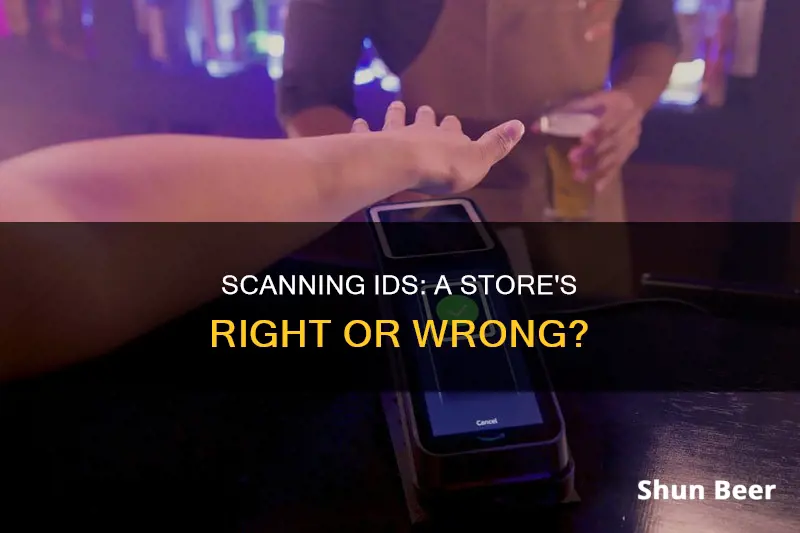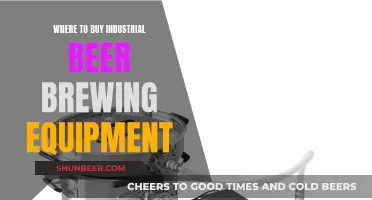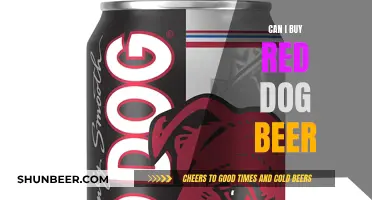
Retailers often require customers to present a valid ID before purchasing alcohol, cigarettes, or over-the-counter drugs. However, some stores are now taking this a step further by scanning driver's licenses, which has raised concerns about privacy and data security. While scanning helps verify a customer's age and reduces the possibility of human error, it also grants retailers access to personal information beyond what is necessary for age verification. This has led to discussions about the potential risks of data breaches and the need for regulations governing the storage and usage of scanned ID information.
| Characteristics | Values |
|---|---|
| Why do stores scan your driver's license? | To verify that you are of legal age to buy the product. |
| What information do stores get from scanning? | Name, address, age, physical description (eye color, weight, height), and driver's license number. |
| What do stores do with the scanned information? | Stores may or may not retain the information. Some stores claim to only use the information for age verification and do not store the data. |
| Can you refuse to have your license scanned? | Yes, you can refuse to have your license scanned and ask for a physical check of your ID instead. |
What You'll Learn

Why do stores scan licenses when buying beer?
Scanning a driver's license is a common practice for retailers to verify a customer's age when buying alcohol, cigarettes, or other age-restricted products. The barcode on the back of a driver's license contains personal information, including name, address, age, physical description, birthday, height, weight, and driver's license number. While this practice effectively prevents underage sales, it has raised concerns about privacy and data security.
Retailers in different states have varying policies and legal requirements regarding scanning driver's licenses. For example, in Georgia, retailers are required to inform customers that their ID will be swiped and assure them that the information is used only for legitimate purposes. On the other hand, Oklahoma has no specific law regulating how IDs are checked, leaving the policy to vary among retailers.
The primary concern surrounding the scanning of driver's licenses is the potential for personal information to be accessed and stored by retailers. While some retailers claim that they only use the scan to verify age and do not store any data, others acknowledge that the scan transfers all the information on the license to their system. This discrepancy has led to questions about the security of customers' personal information and the potential for misuse or data breaches.
To address these concerns, some cyber security experts advise consumers to be cautious and inquire about the store's data handling practices. Consumers can ask questions such as whether the store is just scanning the ID or also storing the information. Additionally, consumers have the option to refuse the scanning of their license and request a physical inspection of their ID by a manager instead.
Overall, while scanning driver's licenses can be an effective way to prevent underage sales, it is important for retailers to address privacy concerns by being transparent about their data handling practices and ensuring the security of customers' personal information.
Trillium Beer: Where to Buy and What to Know
You may want to see also

What information do retailers get from scanning?
When retailers scan your ID, they can access all the information that is available on the front of the card. This includes your name, address, age, eye colour, weight, date of birth, hair colour, and height. This is possible because all the information on the front of your ID is embedded in the barcode on the back, which is encoded into the magnetic strip.
Retailers are increasingly scanning IDs to verify age and prevent fraud. Chad Vollmers, a store leader at Bobby and Steve's in Bloomington, explained that scanning IDs helps to prevent human error and detect fraudulent documents. Similarly, the Transportation Security Administration (TSA) at airports also scans IDs to enhance the detection of fraudulent documents.
However, concerns have been raised about the security and use of the information collected through ID scanning. Denish Shah, an associate professor of marketing at Georgia State University, questioned whether the information is secure, if cardholders will be notified in the event of a data breach, and how retailers plan to use the valuable information they collect. While some states have "swiping laws" that regulate how long retailers can store information, others, like Georgia, only require that customers are informed and that the information is used for legitimate purposes.
Beer Buying in Illinois: Late-Night Restrictions
You may want to see also

Do retailers store customer information?
Retailers may require customers to scan their driver's licenses when purchasing alcohol, cigarettes, or lottery tickets. While this is often done to verify the customer's age, some people may wonder if stores also use this opportunity to collect and store personal information.
The answer is that it depends on the retailer and the state's laws. In some states, such as California, there are laws that limit the collection of personal information in retail stores. For example, the Song-Beverly Credit Card Act of 1971 states that when a consumer pays with a credit card, the merchant cannot record any personal information other than what is on the front of the credit card. Similarly, when a consumer pays with a check, the merchant cannot record the credit card number.
However, in other states, retailers may have more freedom to collect and store personal information from driver's licenses. For example, in Minnesota, there is no specific "swiping" law that governs what retailers can do with the information gained from scanning driver's licenses. While the Minnesota Department of Driver and Vehicle Services controls which organizations can decode the encrypted information, retailers are generally allowed to access the information available on the front of the card, including the name, address, age, eye color, weight, and date of birth.
When it comes to age-restricted purchases, some retailers have stated that they do not store customer information from driver's licenses. For instance, Chad Vollmers, a store leader at Bobby and Steve's in Bloomington, said, "We don't store the store information... We don't see a name, we don't see an age... We see nothing of the information from your license." Similar statements have been made by Dollar General, Holiday, and Cub Foods, with the latter stating, "Protecting customer information is a priority for CUB and our system only records the transaction as 'age verified.' Cub does not retain any customer data, track purchases, or lottery winnings nor do we submit any reports to the state or any other party."
On the other hand, some retailers do admit to collecting and storing personal information from driver's licenses, particularly when it comes to returns and exchanges. This is often done to prevent fraud and abuse. The Retail Equation (TRE), a company that provides ID-scanning and anti-fraud database services, states that it uses "several pieces of information from IDs to ensure accurate consumer identification," including the identification number, name, address, date of birth, and expiration date. While this practice is legal in some states, such as California, which allows the collection of personal information for fraud prevention, it has raised concerns among consumers and lawmakers about the potential for excessive data collection and the lack of transparency in store policies.
Keg Buying Guide: Where and How to Purchase
You may want to see also

Can customers refuse to have their license scanned?
In the United States, there are varying ID scanning laws and regulations across different states. While most states have laws and regulations surrounding the scanning of IDs for age-restricted purchases, the specific requirements and restrictions may differ. For example, in Minnesota, there is no specific "swiping" law that dictates what retailers can do with the information obtained from driver's licenses. However, the state's Department of Driver and Vehicle Services authorizes different levels of access to the information on the license, with retailers typically only able to access the information available on the front of the card.
Regarding the question of whether customers can refuse to have their license scanned, the answer may depend on the specific state and the retailer's policies. In some states, there are no laws requiring customers to consent to ID scanning, which implies that customers may have the option to refuse. However, it is important to note that refusing to scan an ID may result in the retailer choosing not to proceed with the sale, especially if the retailer's policy mandates ID scanning for age-restricted products.
Additionally, some states, such as Utah, have laws mandating ID scanning for the sale of alcohol, which means customers may not have the option to refuse scanning in those states. On the other hand, New Hampshire is the only state that prohibits the scanning of IDs for any reason, giving customers the explicit right to refuse scanning.
To make an informed decision, customers can inquire about the specific retailer's policies and check their state's regulations regarding ID scanning. It is worth noting that some states do require customer notification or consent before their ID is scanned, which may give customers the opportunity to refuse if they are uncomfortable with the process.
Stone Cold Beer: Where to Buy Austin's Brew
You may want to see also

What are the risks of personal information being scanned?
Scanning a driver's license can reveal a lot of personal information, including an individual's name, address, birth date, driver's license number, photo, and other sensitive details. While the practice of scanning IDs is becoming more common, it poses several risks to personal information and privacy.
One of the primary risks associated with scanning driver's licenses is the potential for identity theft. Scanned ID information can be accessed or sold to marketers, scammers, or other unauthorized individuals, who can then use this data for malicious purposes. This information can also be used for stalking or other invasive activities, as it provides personal details that can facilitate these actions. Furthermore, there is a concern that the collected data may be disseminated or sold without the individual's knowledge or consent, as there are often no privacy statements outlining the specific use and retention of this information.
Another risk lies in the potential for unauthorized access or data breaches. Scanned ID information may be stored digitally, and if the storage system is inadequately secured, it could be vulnerable to hackers or other malicious actors. This further increases the risk of identity theft and other fraudulent activities.
Additionally, the practice of scanning driver's licenses raises concerns about the unnecessary collection of personal information. In some cases, alternative forms of verification, such as visual inspection of the ID or the use of less intrusive photo IDs, may be sufficient to meet the security needs of a particular establishment.
Finally, there is a lack of transparency and standardized regulations regarding the scanning of driver's licenses. While some states, like Minnesota, have laws that allow organizations to decode the encrypted information, there is no federal "swiping" law that governs what retailers can do with the scanned data uniformly across the United States. This inconsistency can lead to varying levels of privacy protection for individuals depending on their location.
Overall, the risks associated with scanning driver's licenses include identity theft, stalking, unauthorized data dissemination, data breaches, and a lack of transparency and standardized regulations regarding the practice. It is important for individuals to be aware of these risks and for organizations to implement robust data protection measures to safeguard personal information.
Snake Venom Beer: Where to Buy This Exotic Brew?
You may want to see also
Frequently asked questions
Yes, a store can require scanning your driver's license to buy beer. This is to verify that you are of legal age to purchase alcohol.
The barcode on the back of a driver's license contains all the information on the front, including your name, address, age, physical description, birthday, height, weight, and driver's license number.
You can refuse to have your license scanned and ask if a manager can physically check your ID instead. However, note that some states have "swiping laws" that determine what retailers can do with the information gained from driver's licenses, and you may be denied service if you refuse the scan.
According to store representatives, the primary purpose of scanning driver's licenses is to verify the age of customers purchasing age-restricted products, and the information is not stored. However, there have been concerns raised about the potential for retailers to collect and misuse personal information.







